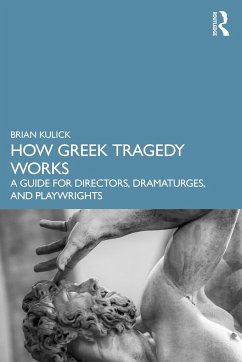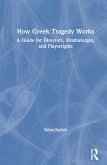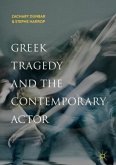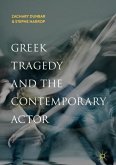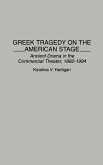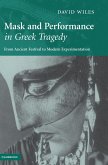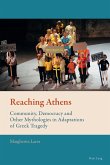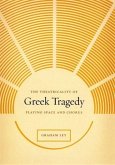How Greek Tragedy Works is a journey through the hidden meanings and dual nature of Greek tragedy, drawing on its foremost dramatists to bring about a deeper understanding of how and why to engage with these enduring plays. Brian Kulick dispels the trepidation that many readers feel with regard to classical texts by equipping them with ways in which they can unpack the hidden meanings of these plays. He focuses on three of the key texts of Greek theatre: Aeschylus' Agamemnon, Euripides' The Bacchae, and Sophocles' Electra, and uses them to tease out the core principles of the theatre-making and storytelling impulses. By encouraging us to read between the lines like this, he also enables us to read these and other Greek tragedies as artists' manifestos, equipping us not only to understand tragedy itself, but also to interpret what the great playwrights had to say about the nature of plays and drama. This is an indispensable guide for anyone who finds themselves confronted with tackling the Greek classics, whether as a reader, scholar, student, or director.
Hinweis: Dieser Artikel kann nur an eine deutsche Lieferadresse ausgeliefert werden.
Hinweis: Dieser Artikel kann nur an eine deutsche Lieferadresse ausgeliefert werden.

